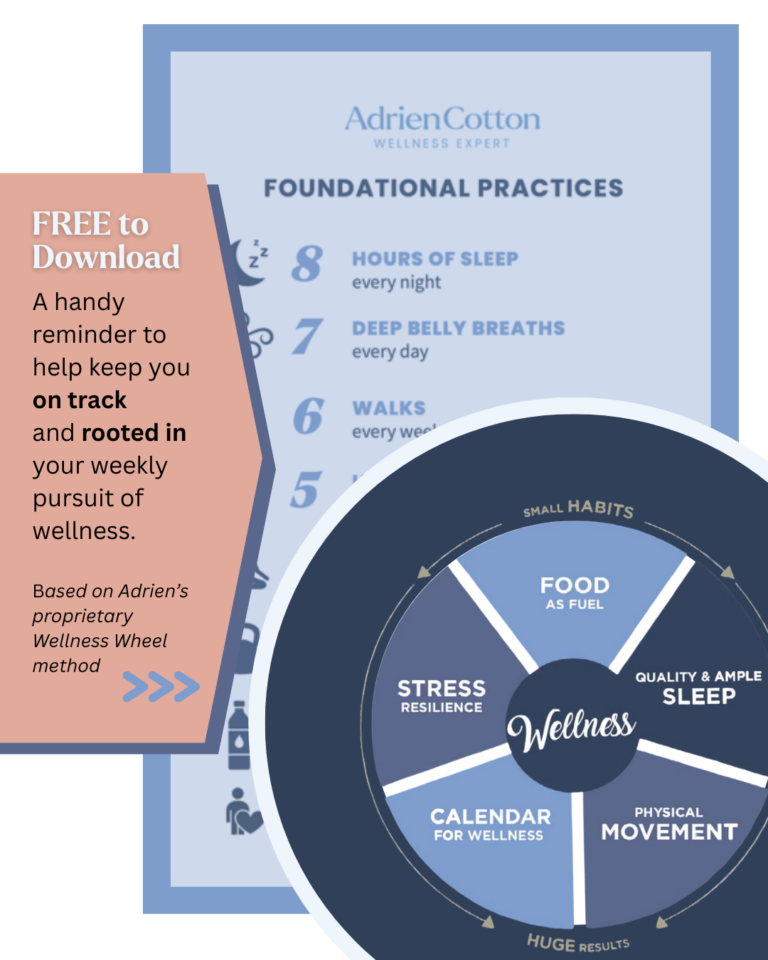Why is it that so many women (40 million!) are in perimenopause yet so many don’t even know they are? This is the biggest change our bodies will experience since puberty. You’d think we’d be more aware of it as an age group, right?
It is fairly simple, though, why we’re not.
- We have only just begun to learn about women’s health during menopause because the science of women’s health is very new. In fact, women weren’t even required to be in clinical trials until 1993!
- Women’s health especially regarding menopause has been kept “hush-hush,” causing so many to suffer in silence.
- Often our doctors aren’t schooled on it – because the study of it is so new!
We can change this by breaking the silence, speaking up, and boldly taking our mid-life back.
So, for those of you in your forties and early fifties who just might be unaware that many of the pesky issues you’re having with your body are the result of perimenopause and menopause, I’m here to guide you through this transition. Things like the inability to lose weight, carbohydrate cravings, and doing everything you’ve ever done to get fit and still not seeing results are the many effects I see. I’ve been there, I’ve helped others – now let me help you!
What is perimenopause anyway? Perimenopause is the transition to the phase of life where reproduction ends. It normally occurs in our forties and the symptoms are varied in scope and intensity.
The “core four” most common symptoms of perimenopause are: hot flashes/night sweats, sleep disruption, depression, and vaginal dryness.
All of these changes stem from the most significant change in our bodies during this transition– fluctuating hormone levels, namely estrogen. Let me explain some “estrogen science.”
Between puberty and perimenopause, women have very high levels of estrogen. Nature made sure of this for reproduction. And whether you ever had children or not, evolution made sure that your body was designed to reproduce.
However, estrogen isn’t only important for reproduction – it’s practically a woman’s essence! Estrogen is vital for overall health and wellness, and is an essential part of who we are as women. Remove it, and our body falls out of balance, resulting in a cocktail of symptoms that might make you feel strange in your body.

When ovulation ceases, our body begins to slowly lower our estrogen levels. Declining estrogen levels wreak hormonal havoc that can cause night sweats and sleepless nights. Sleep deprivation produces increased levels of ghrelin (the hunger hormone) and decreased levels of leptin (the “stop eating” hormone). This contributes to the weight gain cycle.
Whew! That was a lot. By this point, this hormone is sounding like something we most definitely don’t want to see on the decline. When our estrogen levels begin to fluctuate, with high “highs” and low “lows,” they create a feeling of internal chaos that manifests itself as stress that leaks into all areas of our day-to-day life.
As much as we may want to ignore these changes – they are happening, or, if you’re not there yet, they will happen. Our solution is to do the work, shift our mindset about the possibilities during this phase, and change our approach to wellness.
So, what can we do? How can we thrive during this transition? This transition is not, by any means, the start of suffering through years of uncontrollable change. This is a time in our lives where we can reset, reflect, and make simple yet effective changes for what YOU want. If I can leave you with just one “nugget” of wisdom – get your sleep.

If any or all of the symptoms I listed above apply to you, this is the perfect time for you to prioritize your sleep. Sleep really is a miracle process, which is why it’s my first recommendation for clients in perimenopause and menopause. It is what our body needs more than anything during this phase of our lives. As estrogen begins to fluctuate and then decline, our brain is confused and tired. You can refresh and reset your tired brain by sticking to a consistent sleep routine of at least seven to seven and a half hours a night.
This perimenopausal transition comes with its share of aches, pains, and truths, yet it can bring wisdom, perspective, and a host of benefits I can attest to myself. So, take this time to focus on what is most important – your perimenopausal journey, getting your sleep, and the beauty you can create from this new adventure in life.




